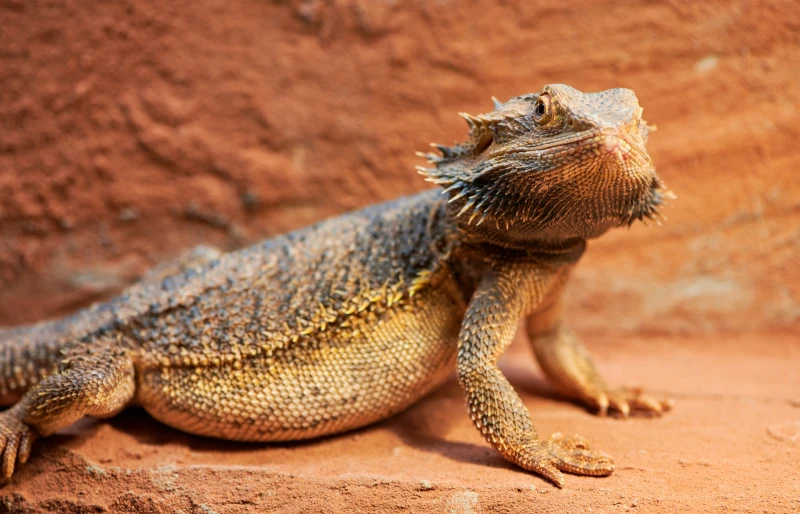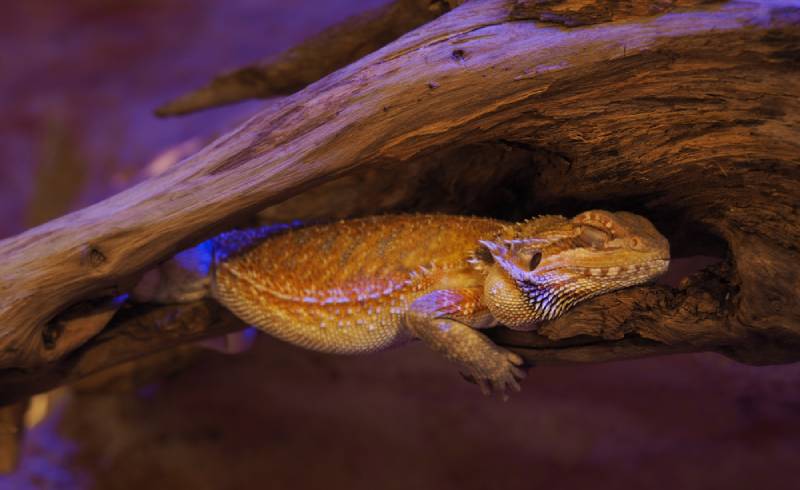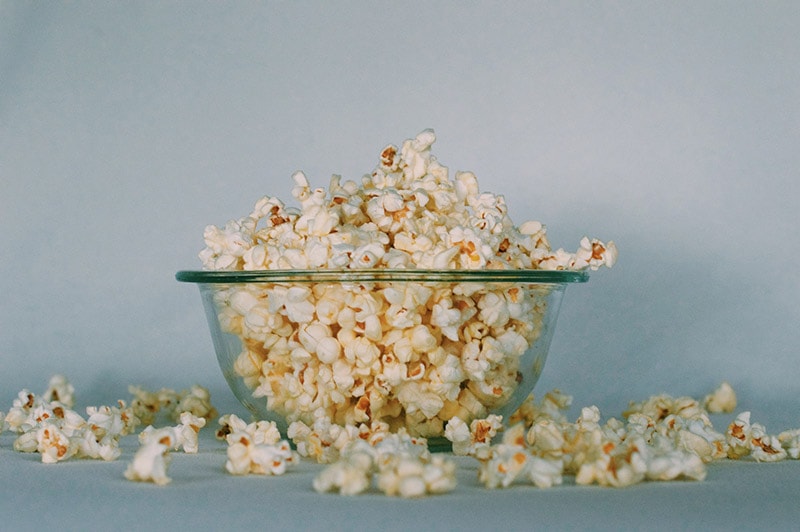Can Bearded Dragons Eat Cheese? Vet-Reviewed Nutrition Facts & FAQ
By Adam Mann
Updated on
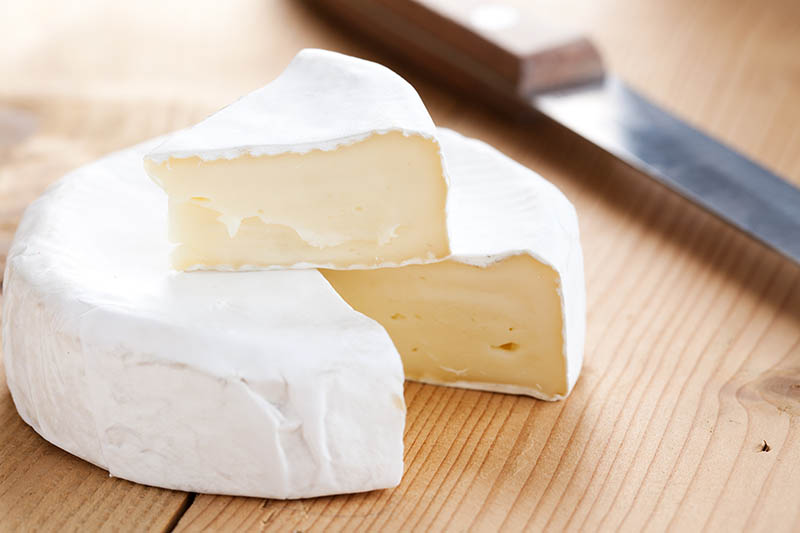
Click to Skip Ahead
Bearded dragons are a popular reptile pet and if you have one of these fun lizards running about you may be wondering if you can share your food with them. Bearded dragons are omnivores and depending on their age should be eating primarily insects and leafy green vegetables. While bearded dragons need plenty of calcium in their diet and cheese is full of calcium, you should never feed your bearded dragon cheese.
Why Can’t Bearded Dragons Eat Cheese?
While you could state that the reason bearded dragons can’t eat cheese is the high fat content or the excessive protein (both of which are true), neither is the primary reason you should never feed your bearded dragon cheese.
The real reason is because bearded dragons are lactose intolerant. Bearded dragons are not mammals, and as such, they never have the enzymes necessary to break down dairy products. This means no cheese, or anything else with dairy in it, for that matter!
What Can You Feed Bearded Dragons?
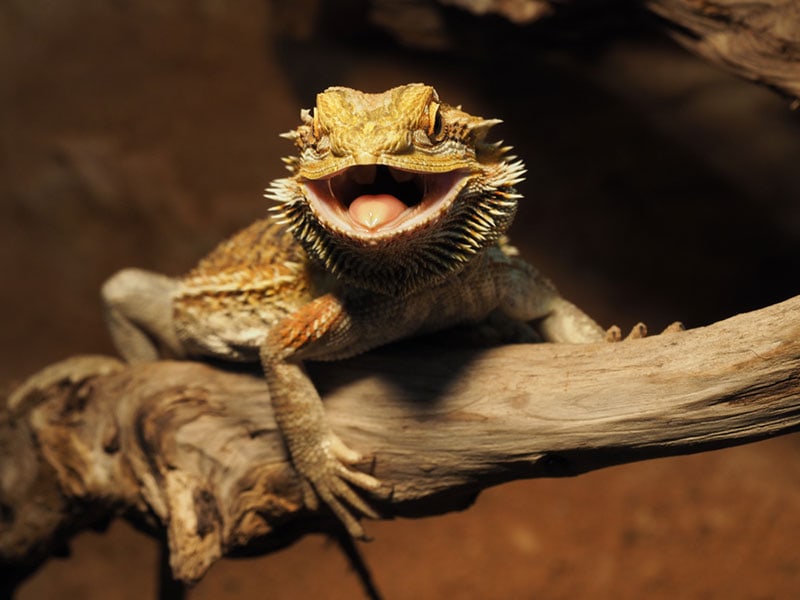
While you can’t feed bearded dragons any dairy products, including cheese, there are still plenty of options out there that you can feed them. We’ve highlighted a few of our favorite options for you here, but there are still plenty more choices for you to discover and pick from!
Crickets
Insects should make up about 20% of an adult bearded dragon’s diet, and one of the most popular insects out there to feed them are crickets. Crickets are widely available in pet stores and are a highly nutritious snack for bearded dragons. But they’re also quick and noisy, so ensure you have a quiet place to store them and you maintain complete control of them when transferring them to your bearded dragon’s enclosure.
Mealworms
Mealworms are another live insect snack that bearded dragons love to chow down on. However, you should only feed mealworms to adult bearded dragons, and even then, you shouldn’t give them more than five or six a day.
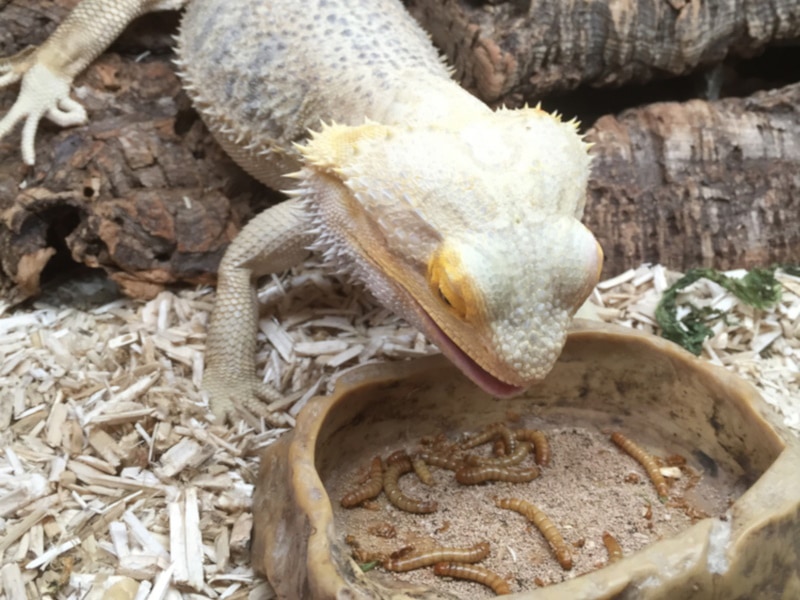
Collard Greens
Leafy green vegetables should make up the majority of your older adult bearded dragon’s diet, and one of the best vegetables out there for them is collard greens. These greens are a great addition to their diet and offer tons of beneficial nutrients, so keep a good amount on hand if you’re caring for a bearded dragon.
Zucchini
Zucchini is another great treat option for your bearded dragon, although you really should only feed it to them about once a month or so. Because while zucchini offers tons of beneficial nutrients, too much of it can increase the risk of metabolic bone disease.
Watermelon
While you can feed your bearded dragon some watermelon, you don’t want to overdo it. Ideally, you should only give them watermelon about once a month.
Blueberries
While blueberries are a fruit like watermelon, they can eat them a little more often. A couple of blueberries a week shouldn’t present any problems, and your bearded dragon will love the taste of them!
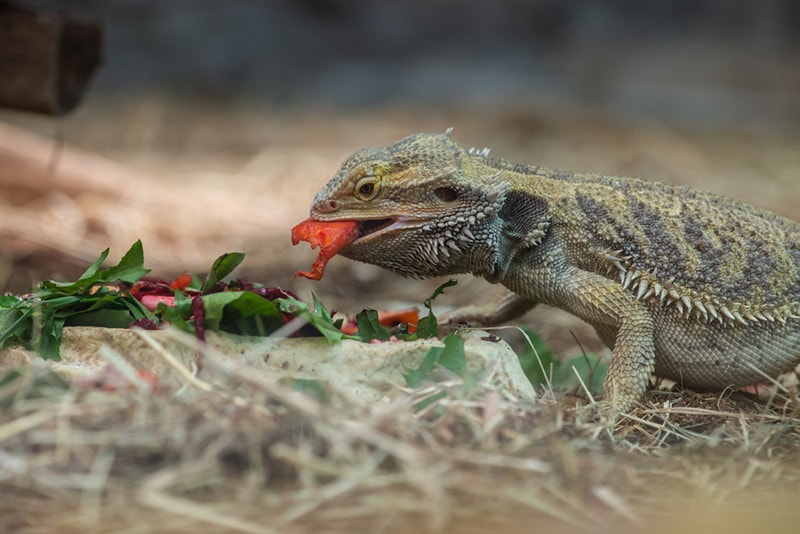
Other Things to Avoid Feeding Bearded Dragons
While there are plenty of foods that bearded dragons can eat, there are also plenty of foods they can’t eat. We’ve highlighted a few foods you should never feed your bearded dragon here:
Avocado
While avocado is a treat for humans, they contain persin, which is potentially toxic for bearded dragons. Every part of an avocado contains persin, which means you need to keep it far away from bearded dragons.
Onion
Onions are another example of a vegetable that might seem like a safe choice for bearded dragons but really aren’t. Onions are part of the allium species of plants and they contain thiosulphates which have shown to cause toxicity in many species including tortoises. It is recommended that you do not feed onions to bearded dragons to avoid potential toxicity.
Iceberg Lettuce
While iceberg lettuce isn’t poisonous to bearded dragons, it contains a lot of water and almost no nutritional value. This means a bearded dragon doesn’t gain anything by eating it, but it will make them feel full, which means they won’t eat the other foods they need to fulfill their daily nutritional needs.
Fireflies
While many live insects are a great treat for bearded dragons, fireflies are extremely toxic. In fact, a single firefly contains enough cardiotoxins to kill an adult bearded dragon.
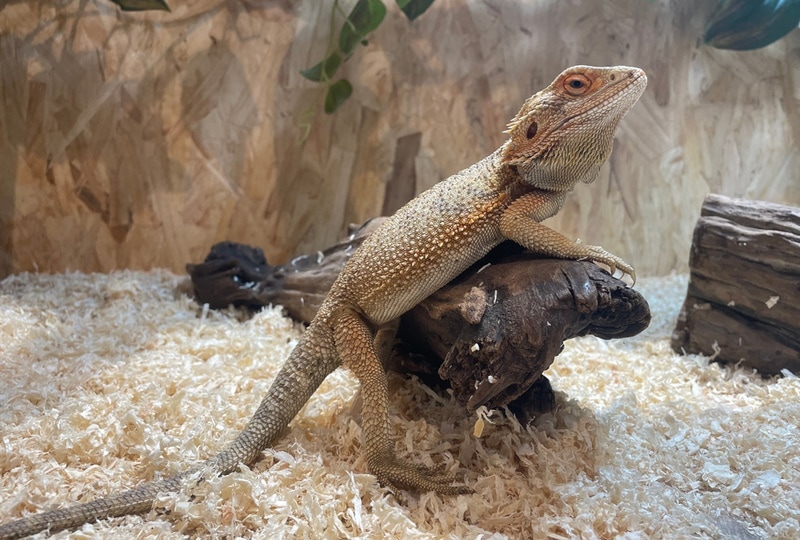
Final Thoughts
While there are plenty of great snack options for your bearded dragon, cheese simply isn’t one of them. Keep the dairy far away from your bearded dragon and look for something sweet or a special insect to feed them as a snack.
Do your research first, but there are plenty of different options for you to feed your bearded dragon if you want to give them something special!
Featured Image Credit: iri Hera, Shutterstock


